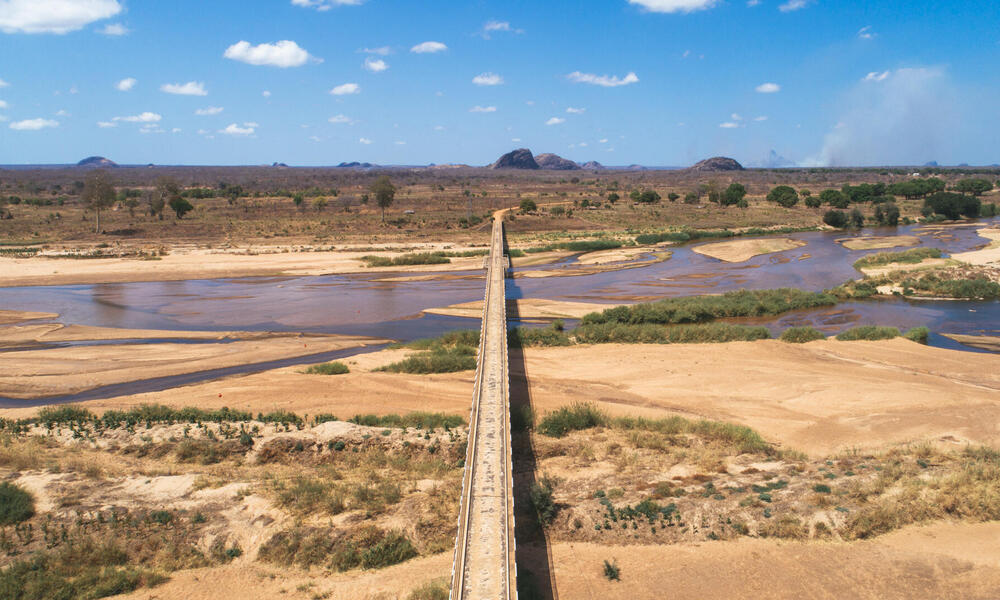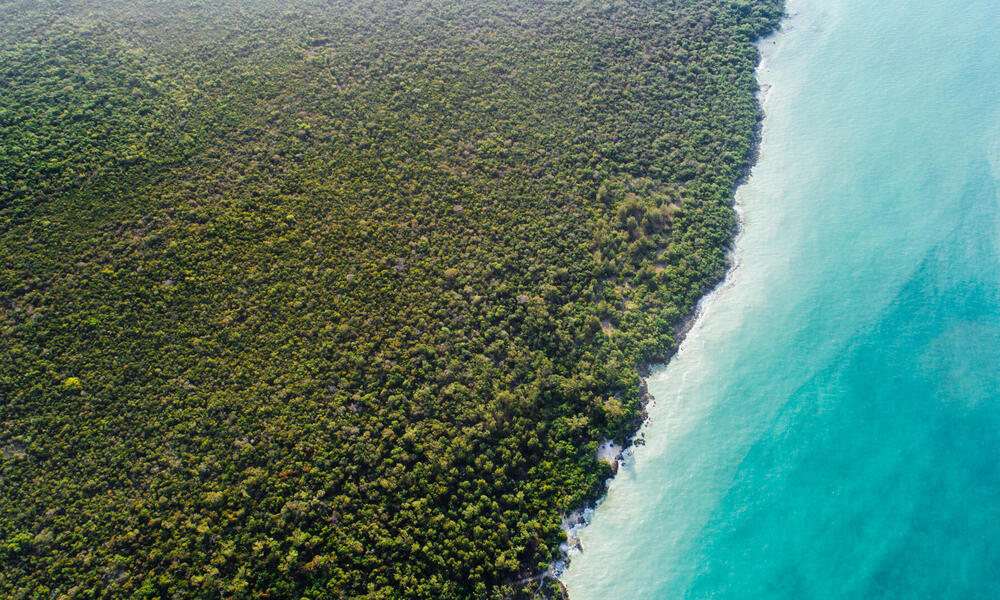Mozambique is one of the fastest growing countries in Africa. Its population has nearly doubled in 20 years.
With more people has come an increased demand for products and materials, many which originate in nature—fish from the ocean for people to eat, timber from mangroves to build homes, water from rivers for irrigation, and more. Communities and cities rely on these natural resources every day. Businesses, too, depend on a healthy environment; they also need a steady and reliable supply of natural resources to succeed.
These demands strain the country’s natural resources—especially given that many of the resources are harvested unsustainably. So does the development of roads, dams and other infrastructure that cut through natural areas. So do the severe weather events associated with climate change. In many parts of Mozambique, rivers are dry, forests are degraded and oceans are polluted. As a result, the country’s economy—as well as its food supply, security and more—is at risk.
The solution: protect the natural capital
But there is strong support from the Government of Mozambique to address these challenges. With help from WWF, the African Development Bank and others, the government created a green economy action plan a few years ago that recognizes the value of natural resources to people and biodiversity.
That led to a five-year strategy that makes the sustainable management of natural resources and the environment a priority, and to the creation of a program that will focus on protecting the country’s natural capital. Simply put, natural capital is the stock of natural resources—land, water, soil, plants, wildlife and air—that provide essential benefits (ecosystem services) to the country’s people, plants and animals.
This is the first such program in Africa and one of only a few in the world. The foundation for the program will be a national-level assessment of the country’s natural resources—where are they; what benefits they provide to people, plants, and animals; and how those benefits will change under different climate scenarios. The results from the assessment, expected to be completed in 2019, will hopefully be used to guide both policy and private sector decisions on where and how to grow, enabling economic growth for Mozambique that also protects the natural capital necessary for a resilient and sustainable economy.



